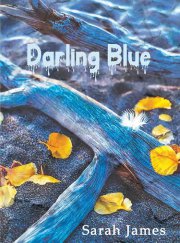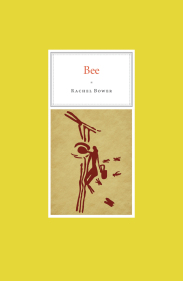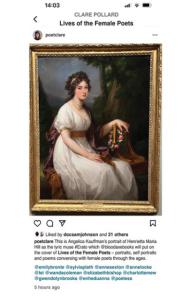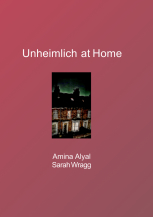
2020
JULY CONTRIBUTORS
Ken Autry, William Bonfiglio, David Callin, Kitty Coles, Eileen Walsh Duncan,
Maren O. Mitchell, Ronald Moran, Sherry Rind, Robert Ronnow,
Jill Sharp, Sarah White.
KEN AUTRY
Bologna
In Bologna, too early in the day
for tourists, a man and his son
hold accordions under a colonnade.
The man’s fingers skim the keys
like butterflies on “Roll Out the Barrel.”
His brow-wrinkled son grips
his too-large instrument, battered
and gray, trying to play along.
He’s got the moves, the in and out
of the bellows, the erratic foot-tap.
But his notes punch the air at random,
go off in directions all their own.
They lean toward one another
like the old towers down the street.
I toss a euro into their cup and walk
two blocks to the piazza
where Neptune’s Fountain
murmurs day and night. A constellation
of coins glistens beneath the water.
In the nearby palazzo is a stairway
wide enough for a team of horses.
Domestic
I tear myself away from Rome,
captured in two dimensions
with a poster of its grand structures
tacked to my wall. I turn my back
on the perfection of the Pantheon,
the coin-tossing crowds
at the Trevi Fountain. I abandon
the hieroglyphics of Trajan’s Column
and return to the simple chaos
of my kitchen with its familiar
stacks of plates and bowls.
I brew a cup of coffee,
not the potent espresso
I gulped in Roman cafés.
Today I will refinish the cabinets,
nothing comparable to the grandeur
of the Coliseum or the sweep
of St. Peter’s Piazza.
But I’ll be alone. I’ll sand them
smooth and apply two coats
of polyurethane. When it dries,
I’ll put back the cups
and glasses lovingly,
reattach the doors, feel
the snap as each new latch
slips into place.
Ken Autry, a former professor of English, now lives in Alabama, U.S.A. His work has appeared in Atlanta Review, Cimarron Review, Poetry Northwest, Southern Poetry Review, Texas Review, and elsewhere. He has published three chapbooks: Pilgrim (Main Street Rag), Rope Lesson (Longleaf Press), and The Wake of the Year (Solomon and George). He is a coordinator of the Third Thursday Poetry Reading Series at Auburn University.
Back to POETRY ARCHIVE
WILLIAM BONFIGLIO
Two Stoners
It is eleven fifty-seven.
Two stoners
sit on the curb
outside my unlit window
and discuss the difference
between bravery and courage.
The one stoner
drops f-bombs every few words
to emphasize the gravity
of their profoundly philosophical
conversation.
He says
No, they’re not the same.
If they were the same
they wouldn’t be different fuckin’ words
would they?
If given the opportunity
I’d offer that bravery is acting without fear,
while courage is choosing to act
in spite of it.
This theory isn’t mine.
It’s something I’ve picked up somewhere,
a tv movie, maybe,
and held for an occasion where
despite my sobriety
my company would consider me
and what I had said
and slowly, thoughtfully
agree.
But their conversation has turned.
The one stoner says
Nate Berner quit, too,
and Nate Berner
was fuckin’ good at hockey.
I don’t know Nate Berner.
But if asked I’d say
Real fuckin’ good.
William Bonfiglio is a PhD candidate at the University of New Brunswick. His poetry has been awarded a Pearl Hogrefe Grant in Creative Writing Recognition Award, the Julia Fonville Smithson Memorial Prize, and has appeared in Sugar House Review, American Journal of Poetry, EVENT, and elsewhere
Back to POETRY ARCHIVE
DAVID CALLIN
A debatable rainbow
We
walked between frozen fields. Few cars went by.
A late star hung in the sky.
A rainbow stood astride
the
road, one shining foot on either side.
It was your birthday, the first one you had missed,
and I had the nerve to suggest
that you had put it there. (Absurd,
I know.) My companion, more devout, demurred.
In his cosmos, covenants and signs
are scattered less profusely than in mine,
or I am more inclined than he
to stoop to pathetic fallacy.
Fairy Bridge
Crossing the bridge,
it's common practice here
to throw a greeting to the little folk,
who will respond in kind. Thus we adhere
to custom, making something of a joke
(but not too much) of bogies and taboos
that loomed so large in our forefathers' lives;
their rules for living, must and must not dos
concerning horses, herring, witches, wives,
seem merely picturesque. Consider, then,
their curses, and the worst of these: Skeab Lhome,
the terrible bare besom of destruction
that brushes all the good luck from the home.
Such courtesies are easy to forget.
Our world is wide and shallow, theirs was all
huddled round the hearth. Should
we regret
the days before the little folk grew small?
David Callin was born in and grew up in the Isle of Man. In his 20s he ran away to join the outside world but was recaptured and brought back. He lives there still, with his wife and a gardening to-do list. "Fairy Bridge" was first published in Southlight, July, 2015.
Back to POETRY ARCHIVE
KITTY COLES
Haunting
Don’t let them shroud the mirrors at the last
so you can stash your soul behind their sheen.
Leave something dear behind you when you go
so it’ll lug you back, bone after bone.
The lover living, dreaming your returning,
can lift you from the loamy under-realm.
Wait for the start of summer, or its end,
the dusk, the sinking sun, its dying fall,
or dawn, the nascent light delivering day:
such times the quick and dead are soonest mingled.
Wrap yourself up in gauze, a drifting fog,
or wear your earthly form; put on your flesh.
Dawdle in doorways; hover near the windows.
Rap on the glass; disturb the residents.
Hide keys and rattle tables; open books
and flutter pages, spelling out your message.
Caress beloved skin; its warmth will shock you
now you inhabit a perpetual cold.
Whisper your nothings in a voice like autumn,
wind crying down the chimney, mould, wet leaves.
The Grandfathers
In photos, they appear impossibly formal,
forever in suits, unsmiling,
their buttons done up.
They sport abundant moustaches,
like certain tamarins,
and their hair gives off
a solid and sticky shine.
Their voices must sound
like the voices on those old newsreels,
with squashed little vowels
and passionless inflections.
One imagines them sitting on beaches
still wearing their ties,
unflinching under the dreary summer rain.
They have left us books
with the pages slightly foxed
and letters, boxed up somewhere in the attic,
some silver spoons,
in need of a good polish,
and these photographs
where they stare out from the flatness
unblinkingly, affronted by the light.
Kitty Coles’ poems have been nominated for the Forward Prize, Pushcart Prize and Best of the Net. Her debut pamphlet, Seal Wife (2017), was joint winner of the Indigo Dreams Pamphlet Prize. Her first collection, Visiting Hours, was published in 2020 by The High Window. www.kittyrcoles.com
Back to POETRY ARCHIVE
EILEEN WALSH DUNCAN
The Heretic
Visits the Ocean God
and Refuses to Sacrifice Her Firstborn
She hears the promise again and again,
the roar that orbits in her head,
the murky kiss of sleep.
She is half-devoured
by the numb breath spiraling up her legs.
She remembers the warm gush
of water between them,
the blue placid face veiled in membranes,
the shudder as air first parted its lips.
There is no such thing
as a cleansed soul,
she thinks,
The water is all in our bodies.
There is only, sometimes,
her daughter's legs flickering
along the shore, like white pansies
fluttering above dumb hummocks of earth.
In just one moment she could melt
into the green ghost-light
of a swollen wave.
In another she could be saved,
pulled like a sudden rabbit
from that lungless universe,
empty-eyed and limp,
the water beading along her skin.
Her daughter's feet
lap at the edge of that
salt-blistered world,
and press their tiny oceans in the sand.
Her own hand wanders
along the gray sand, sinks for
no reason, and comes up filled
with glittering ovals of black glass.
Her daughter will call them seeds.
She will help the child bury them,
and they will both believe.
Eileen Walsh Duncan’s work is forthcoming in Alaska Quarterly Review, Pleasure Boat Studio’s zine Lights, Ramblr Online, the anthology Rewilding: Poems for the Environment, and the city of Shoreline’s Voices in the Forest installation. She received the Bentley Award from Seattle Review, and has been nominated for the Pushcart Prize.
Back to POETRY ARCHIVE
MAREN O. MITCHELL
All the way home
we agree that real death is preferable to slow
suffocation in a retirement home, mind dulled,
memory short, a stranger to self among unfamiliars.
Our memories on the downslope, both over seventy,
driving out of the mountains, we had negotiated city
to spend time with our both-over-ninety friends.
Separated, he could visit her, but not she him.
He was still dining in his section, she sat alone
in a courtyard of real warmth, air and trees,
through with eating, feet up, content,
the others inside, digesting, dying eyes down.
He brought her his dessert, a brownie.
What did you have for dinner? Oh I don’t know.
What did you have for dinner? Oh I don’t know.
After five years, he continues to mourn his limitations,
I don’t have a car anymore. But I can still drive!
Realistic, lucid, she told us,
For institutional food, the food here is pretty good.
Visit over, we head home, curl back
into the mountains, pass two pulsing police cars.
I look downslope,
search for why, see the car, front down
the mountain, stopped by trees,
rear up, straight as a poplar.
If I’m dealt death-by-car,
let me be thrown clear,
let my face plow forest floor,
the spices of soil season me,
let my limbs fling out to re-embrace earth,
last breath, leaf breath,
to the chorale of forest night,
and if I’m really lucky,
to the green words of a wood thrush.
Maren O. Mitchell’s poems appear in San Pedro River Review, The MacGuffin, The Cortland Review, Hotel Amerika, Poetry East, POEM, The Comstock Review, Tar River Poetry, Town Creek Poetry, The Pedestal Magazine, Appalachian Heritage, Slant, Still: The Journal, Chiron Review, The Lake (UK), The South Carolina Review, Southern Humanities Review, Appalachian Journal and elsewhere. Work is forthcoming in POEM, Slant, Still: The Journal and The Orchards Poetry Journal. Two poems were nominated for the Pushcart Prize. She lives with her husband in the mountains of Georgia.
Back to POETRY ARCHIVE
RONALD MORAN
Walking
into a painting
at a gallery
one foot
at a time
is like entering
a life without
regrets
or promises
of never
ending
unless you
push too far
for its secrets.
In cutoff shorts
tee shirt
untucked
ironed-on gibberish
on both sides
dark hair free
chic sunglasses
she walks
by his house
late warm
afternoons
her Shih Tzu
on a leash.
Face framed
by a windowpane
as if posing
he yearns
to be more
aching.
Ronald Moran has published 13 books/chapbooks of poetry and has poems coming out soon in Tar River Poetry and The South Carolina Review. His work is archived in two university libraries.
Back to POETRY ARCHIVE
SHERRY RIND
A Brief Account of Venomous Creatures
It does appear very wonderful that, when anything venomous is brought there from other lands, it never could exist in Ireland. Giraldus Cambrensis, Topography of Ireland, 1188
Though it be a flattering fiction that the saints
cleared these islands of all pestiferous animals,
it is more likely they never existed here any more than wolves.
We suspect green germs of life float in the air,
wet as it is, cleansing all who dwell here,
for the people never sicken until death.
The Venerable Bede, not to be doubted,
tells us every reptile and serpent carried from Britain
dies immediately it breathes the wind
blown from Irish shores
and every poison introduced from other countries
loses its malignant effect, as if turned to rain.
Bede himself witnessed people serpent-bit in England
given scrapings from the leaves of Irish books stirred in water
whereupon the venom lost its power and the swelling drained.
So hostile is Ireland to poison
that its dust sprinkled on foreign gardens
will drive away every venomous reptile.
Indeed, if all Britain knew these miraculous properties,
then neither book nor speck of soil
would be left in Ireland.
Of a Frog Lately Found in Ireland
There are neither snakes nor adders, toads nor frogs, tortoises nor scorpions, nor dragons. Gerald of Wales, Topography of Ireland, 1187
No man supposes this reptile was born in Ireland
for its mud does not contain the germs from which green frogs are bred,
though some particle
may have been exhaled with moist soil into the hollow of a cloud
by the quickening heat of our atmosphere
and blown to Irish shores--
for most clouds go to Ireland--
and dropped in the ungenial soil
where the frog succeeded long enough
to astonish both the English governor and the Irish
when it was found near Waterford
and brought to court still alive
whereby the King of Ossory beat his head in grief
and said this frog portended the invasion of the English
for the subjugation of his people.
Even as he spoke, the frog expired.
Sherry Rind is the author of five collections of poetry and editor of two books about Airedale terriers. She has received awards from the National Endowment for the Arts, Anhinga Press, Artist Trust, Seattle Arts Commission, and King County Arts Commission. Her most recent book is Between States of Matter from The Poetry Box Select Series, 2020. https://sherryrind.wixsite.com/writer
Back to POETRY ARCHIVE
ROBERT RONNOW
Occupied
“And he is generous, and brave, and when the darkness comes to him
he does not sit and weep.”
As a boy, I’d find my father
sitting in the pitch dark living room,
cigarette aglow, as I’d pass
from my bed to the bathroom.
Did the boy consider, at that late hour,
what plans or fears occupied the man?
Not at all, nor did the man share
with the passing boy what he thought.
Now he’s gone. Back from that piss
and many another, I can well imagine
the mystery I must be to my son.
Has much changed but the date and where the man fought?
Most men, most times, abide in peace,
leastwise not always angry or afraid
they cannot save their children from the gas
or the abyss about which God lied.
Yet, when the boy dreams through the room
in the movement of his body there’s a sleepiness
to make the man weep for himself, his father
and the boy who comes to the darkness unafraid.
Robert Ronnow's most recent poetry collections are New & Selected Poems: 1975-2005 (Barnwood Press, 2007) and Communicating the Bird (Broken Publications, 2012). Visit his web site at www.ronnowpoetry.com.
Back to POETRY ARCHIVE
OLEG SEMONOV
Writer’s Block
Again, I’m interrupted by the tap
at the door of this uneven sentence
while its structure is broken abruptly
and the lines are scattered now around
all over the floor of this strange text
to make me hunt for the missing tropes
(the imprints of the past, or of the future)
for unlocking the stubborn door
of this never-ending poem
helplessly staring at me
through the crooked question mark
dumbly waiting for the answer
to be given.
Oleg Semonov graduated from Donetsk National University (Department of the English Philology) in 1990 and has since worked as a translator. His work has appeared in Electric Acorn, Eclectica Magazine, Poetic Diversity etc.
Back to POETRY ARCHIVE
JILL SHARP
Leda plucks a swan
Old now, the body that enchanted him
grown coarse, how could he know her?
Yet she knows him, this creature,
even with fallen wings, eyes empty
of desire. Not hers.
She’s spent a lifetime finding
what he stole from her, doing it
like he did – without her chance
to touch him, or raise her eyes
to his. That’s why,
holding him in her lap,
she takes her hand to him
and in a storm of whiteness
scatters his power of flight.
Jill Sharp is a former OU lecturer and tutor of excluded teenagers. Her poems have appeared most recently in Acumen, Frogmore Papers, Prole, Stand and Under the Radar. Her pamphlet Ye gods is published by IDP and she is one of 6 poets in Vindication, an Arachne Press anthology. “Leda plucks a swan” was first published in Ink, Sweat & Tears, June, 2015.
Back to POETRY ARCHIVE
SARAH WHITE
Scapes
All the islands I have known become one island
whose Eastern coast spreads sandy arms
to welcome bathers and sea tortoises while,
in the West, a reef has shredded ships of armed invaders.
Exhalations from a simmering volcano
perfume expensive evenings in casinos.
In a deserted cane-field, middle schoolers
half-listen to a lesson on the planters
who oversaw the dire, despairing labor
that glutted the whole world with rum and sugar.
At Castle Point, a dark green Ocean crashes
into the teal green Sea, carving boulders
as fortresses. a place for whales to play, not me.
I seek a forest where ferns and mangrove limbs
together weave a gentler island dream.
Sarah White's sixth collection, Iridescent Guest, will soon be published by Deerbrook Editions.
Back to POETRY ARCHIVE



